As a WordPress Developer who manages Servers for multiple websites, I have worked with many clients who require WordPress websites. One of the most important aspects of managing a WordPress website for clients is hosting. Choosing the right hosting provider and managing the website’s hosting can make or break the website’s performance and security.
When it comes to hosting WordPress websites for clients, there are a few tips and best practices that I have found to be particularly useful.
In this article, I will share my knowledge and experience on how to manage WordPress websites for clients, including tips and best practices for managing the website’s hosting.
Table of Contents
1. Selecting a WordPress Optimized Hosting Solution
Choosing the right hosting plan for your client’s WordPress website is crucial to ensure its success. With so many hosting providers and plans available, it can be overwhelming to make the right choice.
Some providers I would suggest:
- Kinsta
- Rocket.net
- Hostinger
- Personal I manage WordPress websites only for Agencies on Auto pilot – (Book a Free Meeting)
So, here are some tips to help you select the best WordPress optimized hosting solution for your client:
Choosing the Right Hosting Plan for your Client
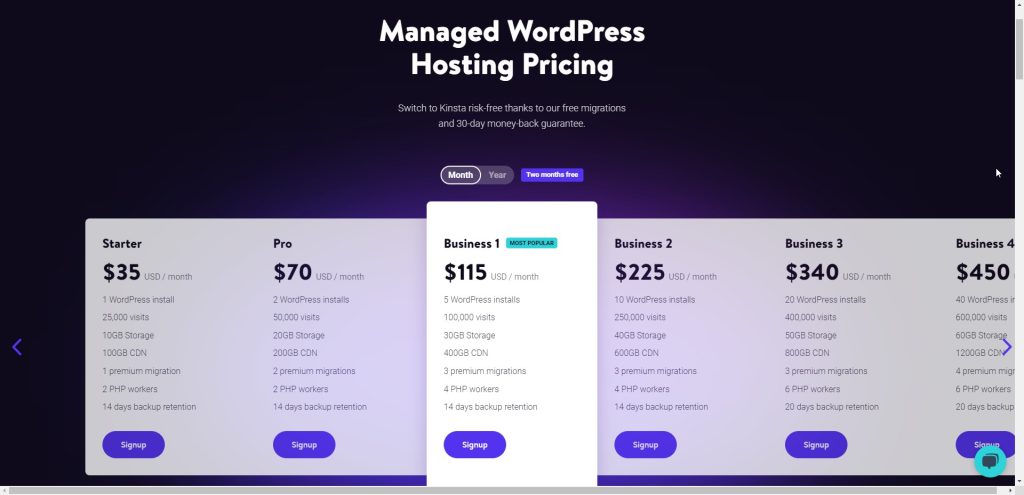
When selecting a hosting plan for your client’s WordPress website, consider the following:
- Plan: Look for a hosting provider that offers WordPress specific plans. These plans are optimized for WordPress websites and come with features like automatic updates and backups, as well as enhanced security and performance.
- Hosting Provider: Choose a reputable hosting provider with a good track record of uptime and customer support. Look for reviews and recommendations from other WordPress users to help you make an informed decision.
- Cost: Consider your client’s budget when selecting a hosting plan. Keep in mind that cheaper plans may come with limited features and resources, while more expensive plans may offer more advanced features and better performance.
It’s also important to consider the specific needs of your client’s website, such as the amount of traffic it receives, the size of its database, and the types of content it hosts. This will help you choose a hosting plan that can accommodate these needs and provide optimal performance for the website.
By taking the time to select the right hosting plan for your client’s WordPress website, you can ensure that it runs smoothly, is secure, and provides a positive user experience for visitors.
2. Choosing the Right WordPress Theme for Faster Performance
I understand the importance of choosing the right WordPress theme for faster performance. Not only does it affect the user experience, but it can also impact search engine rankings.
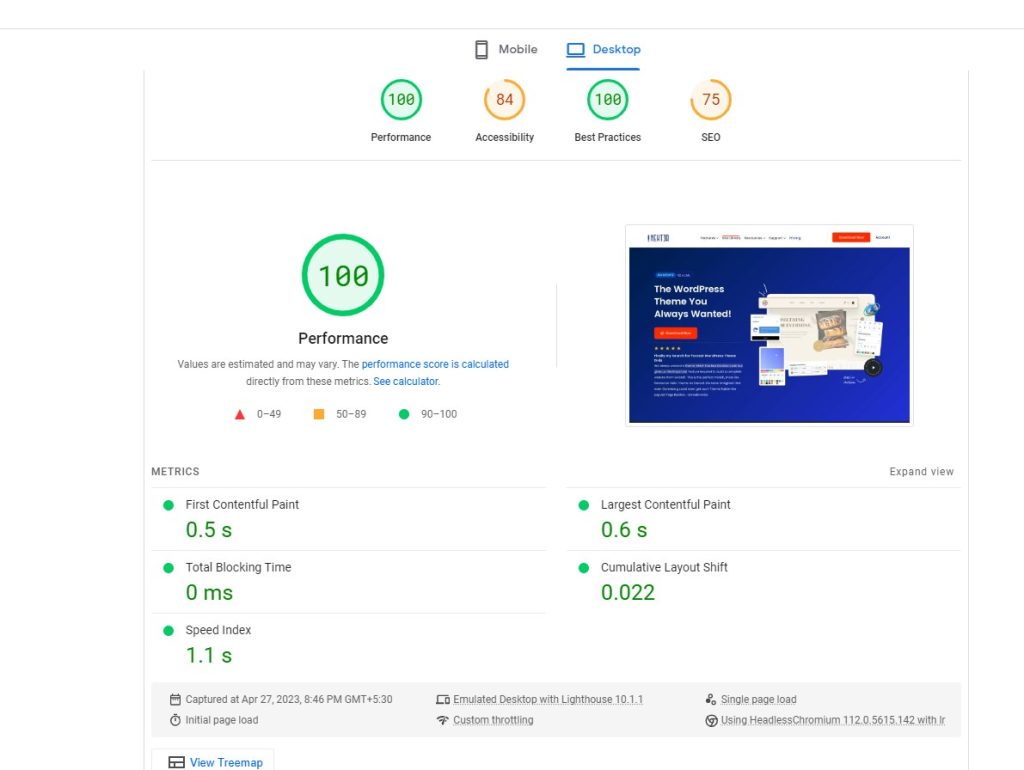
Some light Theme, I would suggest:
This 1st step after hosting your WordPress website will reduce most work of your Performance optimization. Choosing a Theme from developers who code cleanly and load things conditionally is a smart move. — Read How to choose a Perfect WordPress Theme
3. Securing Client’s WordPress Website
It is your responsibility to ensure that your client’s website is secure.
In today’s digital world, website security is of utmost importance.
Here are some tips to help you secure your client’s WordPress website:
Having an SSL Certificate with HTTPS
One of the first things you should do is to ensure that your client’s website has a valid SSL certificate. SSL (Secure Sockets Layer) is a security protocol that encrypts data between a website and its visitors. This is important because it prevents hackers from intercepting sensitive information such as login credentials and credit card details.
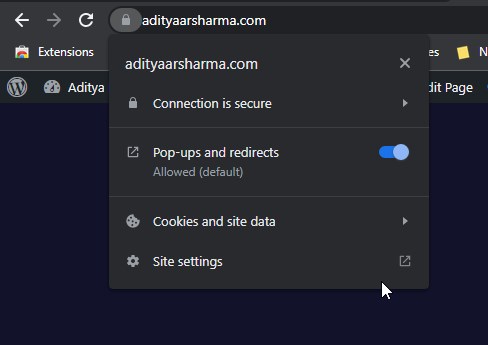
Having an SSL certificate also improves your client’s website’s search engine ranking. Google has been using HTTPS as a ranking signal since 2014, so having HTTPS will give your client’s website a slight boost in search engine visibility.
Are you Spending hours:
- Managing your WordPress website?
- Troubleshooting Technical difficulties?
- Dealing with plugin Security Issues?
- Website Uptime Monitoring?
- Cleaning Hacked Sites?
Let me take care of your WordPress website, so you can focus on scaling your agency.
Give your clients top-notch VPS Hosting for blazing fast performance, 24×7 security monitoring with autopilot safe plugin updates.
I will help you free up time by managing WordPress websites.
Taking Care of Security Hardening for your Client Websites
Another important step in securing your client’s WordPress website is to harden its security.
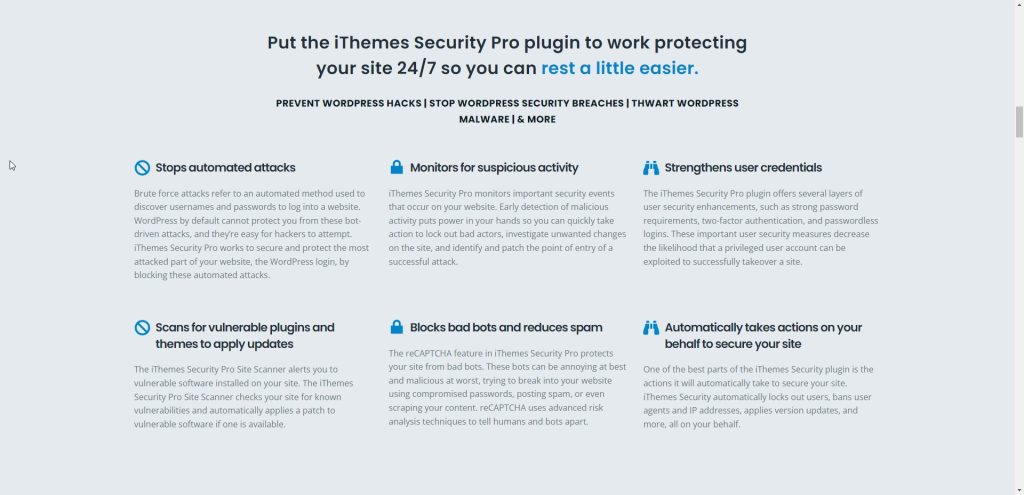
Some Plugins I would suggest:
Here are some best practices:
- Keep WordPress, plugins, and themes updated
- Use strong and unique passwords for all website-related services such as FTP and host logins
- Limit login attempts
- Use two-factor authentication
- Disable file editing in WordPress
- Install a security plugin such as Wordfence or Sucuri
By following these best practices, you can significantly reduce the chances of your client’s website being hacked.
However, keep in mind that no website is completely secure, so it’s important to have a backup plan in case of a security breach.
There is more to WordPress Security, I will be writing a detailed blog on it soon. It should be enough to manage any enterprise grade website.
4. Optimizing WordPress Website for Best Performance of Client Websites
When it comes to managing WordPress websites for clients, one of the most important things to consider is website performance. A slow website can lead to a poor user experience and can even affect search engine rankings. Therefore, it’s crucial to optimize the website for the best possible performance.
I will discuss two important parts that can help you optimize your client’s website for the best performance.
Looking to make it easier for your readers to copy code snippets from your WordPress blog? Check out this tutorial on how to add a copy code button to your WordPress code blocks!
Choosing the Right Cache Plugin for Best Results
Caching is an effective way to speed up a WordPress website. It involves storing frequently accessed data in a cache, so it can be quickly retrieved when needed.
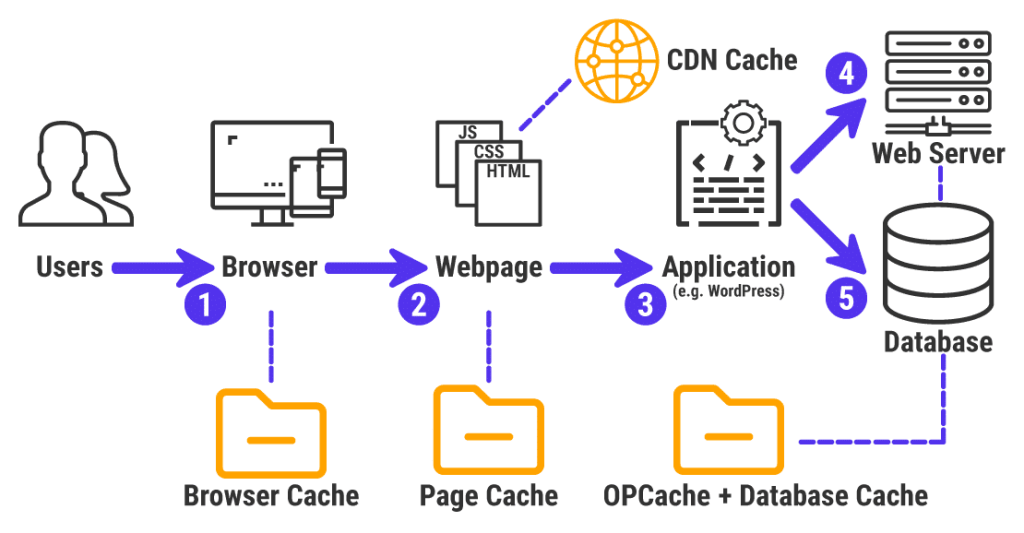
There are many caching plugins available for WordPress, but not all of them are created equal. Choosing the right caching plugin can make a big difference in website performance.
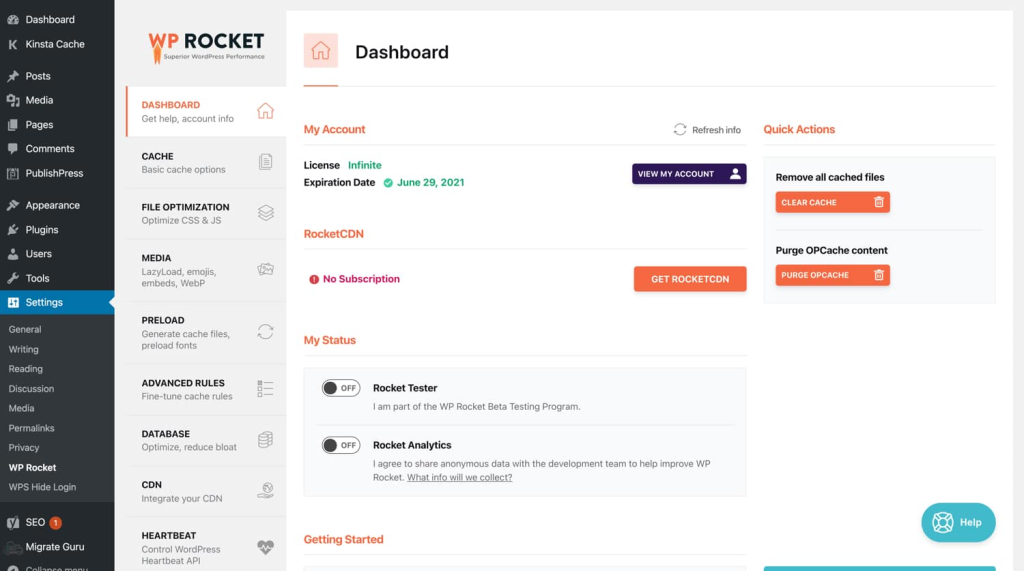
One of the most popular caching plugins is WP Rocket. It’s a premium plugin that offers a wide range of caching features, including page caching, browser caching, and object caching. WP Rocket also includes other performance optimization features, such as minification and lazy loading. Another popular caching plugin is W3 Total Cache, which is a free plugin that offers similar caching features.
When choosing a caching plugin, it’s important to consider your client’s website needs and budget. WP Rocket is a great option for clients who are willing to pay for a premium plugin, while W3 Total Cache is a good option for clients on a tight budget.
Debloating WordPress & Other Performance Optimization
Another important aspect of website performance optimization is debloating WordPress. This involves removing unnecessary code, files, and plugins from the WordPress website. This can help reduce the website’s load time and improve performance.
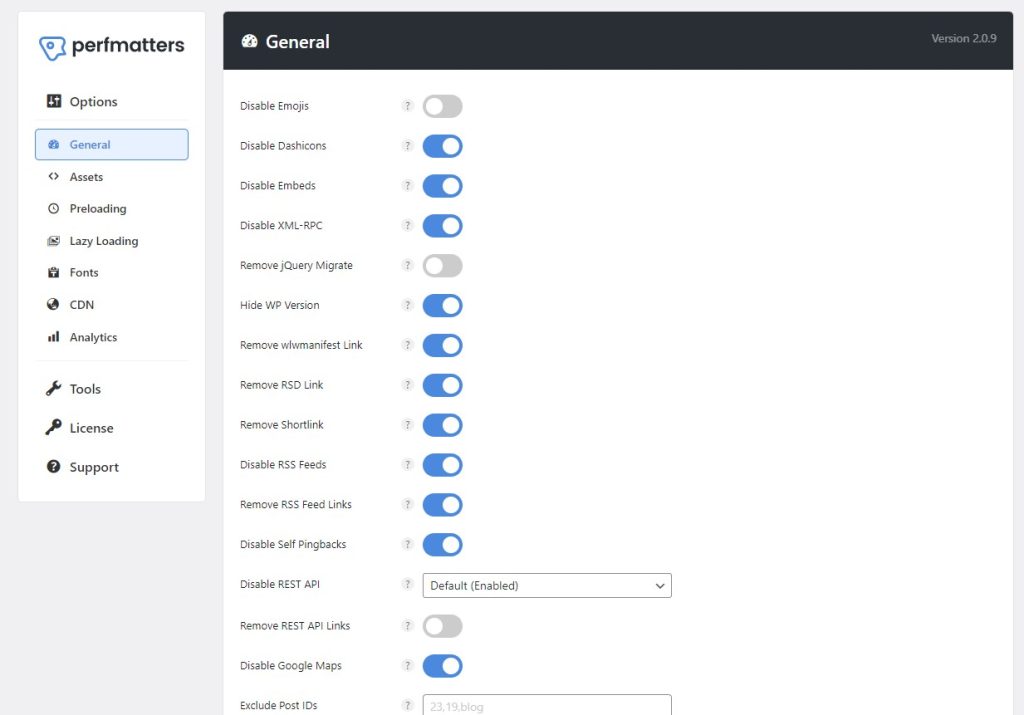
One way to debloat WordPress is by removing unused plugins and themes which you aren’t using. And then using Plugins like Perfmatters on your current setup to remove unnecessary CSS and JS for each page.
Take a look at how to set up Perfmatters, directly from the makers.

Other performance optimization techniques include optimizing images, reducing HTTP requests, and using a content delivery network (CDN). These techniques can help improve website performance and reduce load times.
Are you tired of dealing with the technical aspects of running your agency, like server management and troubleshooting? As your technical partner, I can take care of all the nitty-gritty details so that you can focus on scaling your agency and serving your clients.
With my expertise, I can make everything run on autopilot, giving you peace of mind and freeing up your time to focus on what you do best. Let’s connect and see how I can help you take your agency to the next level.
5. Optimizing Heavy Image Files for Client Websites
We all know the importance of optimizing heavy image files for client websites. Not only does it improve the website’s loading speed, but it also enhances the user experience.
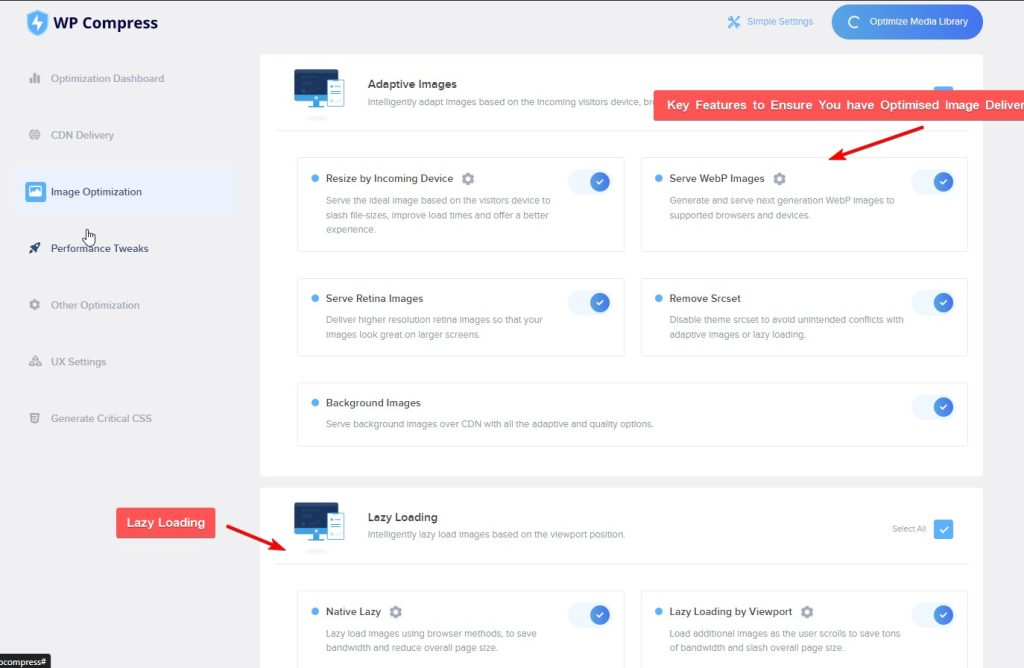
Here are some tips and best practices on how to optimize heavy image files for client websites.
Image Optimization
Image optimization is the process of reducing the file size of an image without compromising its quality. Here are some ways to optimize heavy image files:
- Use image compression tools like TinyPNG or WP Compress to compress the image file size.
- Resize the image to the appropriate dimensions before uploading it to the website. Mostly plugins like WP Compress automatically take care of it.
- Use the appropriate image file format. For example, PNG is best for images with transparency, while JPEG is best for photographs.
- Use lazy loading to improve the website’s loading speed. This technique only loads the images when they are visible on the screen.
6. Managing WordPress Updates for your Client Website
Managing WordPress Core Updates
As a WordPress website host for clients, it is important to keep their website up-to-date with the latest version of WordPress. Updating WordPress can be a time-consuming task, especially when you have multiple client websites to update.
To save time, I use bulk update tools like ManageWP or MainWP. A quick glance at my Main WP Dashboard of the sites I manage.
I have compared 8 popular WordPress management tools with 40+ features, check which WordPress Website Management tool is best for you.
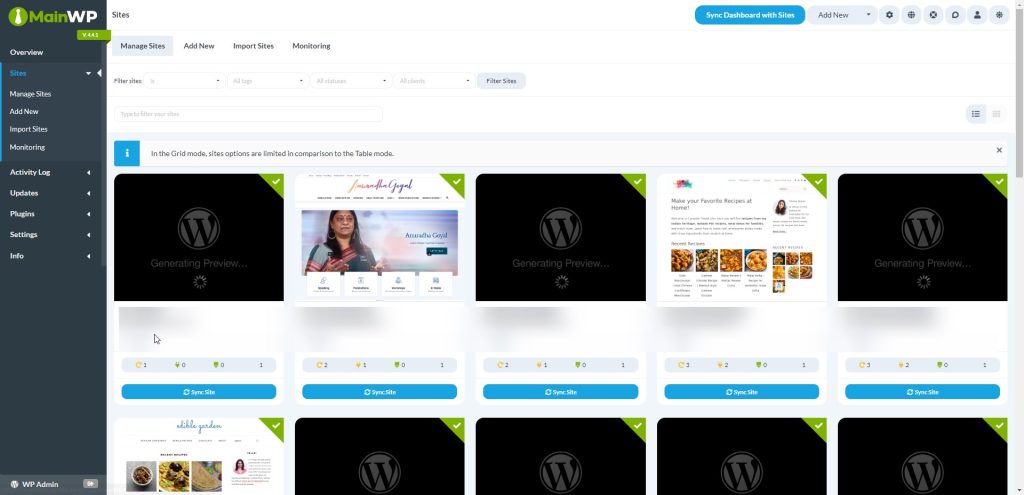
These tools allow me to update WordPress core for multiple websites at once, saving me time and effort. With these tools, I can easily schedule updates and ensure that all my client websites are running the latest version of WordPress.
Plugin and Theme Updates
In addition to updating WordPress core, it is also important to keep plugins and themes up-to-date. Outdated plugins and themes can pose a security risk to your client’s website. Therefore, it is important to stay on top of updates for plugins and themes.
Like WordPress core updates, I use bulk update tools to manage plugin and theme updates. These tools allow me to update plugins and themes for multiple websites at once, making the process quick and easy. To ensure that my client websites are running smoothly, I always test updates on a staging site before applying them to the live website.
This allows me to catch any potential issues before they become a problem for my clients.
Avoid using the default Auto-update feature from WordPress, as updating quickly to the latest version can break your website, often update only when you feel the plugin is safe to do so.
7. Setting Up SEO Plugin: Taking Care of SEO for Your Clients
Search engine optimization (SEO) is an essential part of any website, and it’s no different for WordPress sites. It’s your responsibility to ensure that your clients’ websites are optimized for search engines. One of the best ways to achieve this is by setting up an SEO plugin.
Technical & On-Page SEO Best Practices
When it comes to SEO, technical and on-page optimizations are crucial. Here are some best practices to consider:
- Ensure that the website has a clean and organized structure
- Optimize website speed and performance
- Use proper heading tags (H1, H2, H3, etc.)
- Add alt tags to images
- Include meta descriptions and meta tags
- Use relevant keywords in the content
- Ensure that the website is mobile-friendly and responsive
By implementing these best practices, you can help your clients’ websites rank higher in search engine results.
You can take a look at this helpful resource from the Ahref YouTube channel on Technical SEO

8. Backing Up Your Client WordPress Website
Backups protect against data loss and ensures that your client’s website can be restored in case of any issues or errors.
Here, I will discuss the best practices for backing up your client’s WordPress website.
Backup Best Practices – Making 2 Backup Copies
When it comes to backing up your client’s WordPress website, it’s always best to make two backup copies. This ensures that you have a backup of your backup, in case of any issues with the primary backup.
Personally, I use the All-in-One Migration & Server-side Backup, and these 2 copies are enough to avoid nightmares
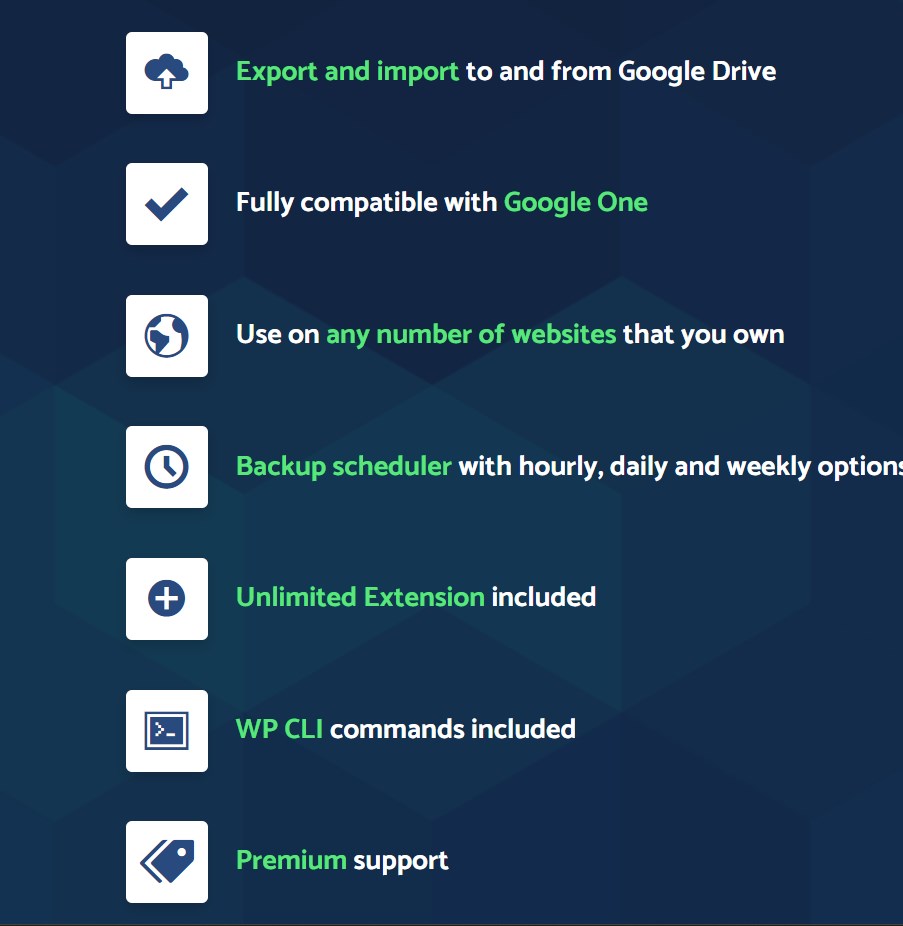
Additionally, it’s important to store the backup copies in separate locations, such as on a local server and a cloud storage service like Dropbox or Google Drive.
There are several ways to back up a WordPress website, including using plugins or your host’s native solution. Here are some backup best practices to consider:
- Back up your website regularly, ideally daily or weekly depending on the frequency of updates.
- Test your backup to ensure that it is complete and can be restored.
- Keep your backups organized and labeled, so you can easily find the right backup when needed.
- Store your backup in a secure location, away from any potential threats or vulnerabilities.
Are you Spending hours:
- Managing your WordPress website?
- Troubleshooting Technical difficulties?
- Dealing with plugin Security Issues?
- Website Uptime Monitoring?
- Cleaning Hacked Sites?
Let me take care of your WordPress website, so you can focus on scaling your agency.
Give your clients top-notch VPS Hosting for blazing fast performance, 24×7 security monitoring with autopilot safe plugin updates.
I will help you free up time by managing WordPress websites.
9. Submitting Monthly Reports to Clients
One of the most important things you can do to keep your clients happy is to provide regular monthly reports. These reports should be clear, concise, and easy to understand without making too much cluttered.
Adding Key Informations in Report
When submitting monthly reports to clients, it’s important to include key information that will help them understand how their website is performing. Some of the key information you should include in your report includes:
- Website Traffic: This includes the number of visitors to the website, the number of page views, and the average time spent on the site.
- SEO Metrics: This includes the website’s search engine rankings, the number of backlinks, and any changes in these metrics over time.
- Security Metrics: This includes any security incidents that occurred during the month and any steps taken to address them.
- Website Performance: This includes information about the website’s load times, uptime, and any issues that may have occurred during the month.
- Uptime Monitoring: To inform clients if they have faced any downtimes, I use my favorite Uptimerobot, which comes with multiple features like SSL monitoring and all, and it notifies via call, SMS whenever any website of my client faces issues
By including this information in your monthly reports, you will help your clients understand how their website is performing and what steps you are taking to maintain and improve it.
Another important thing to keep in mind when submitting monthly reports to clients is to use visual aids to help convey information. For example, you might include charts or graphs to show changes in website traffic over time or to highlight key performance metrics.
I hope you found this blog helpful, there’s alot more to like debugging WordPress website, when your client faces issues, staying upto date with Performance and Security news so that your client’s site remains safe and sound.
If you’re looking for a Technical Partner for your Agency to handle all the Server and Technical nitty-gritty, then feel free to connect with me. I make everything run on autopilot for you so that you can focus on scaling your agency.
I share my Learnings & Case studies via email.
Subscribe to Stay Updated
FAQs: Common Problems Agencies Face When Managing Client Websites
When managing client websites, agencies may encounter various issues that can affect the website’s performance and user experience. Here are some common questions and problems agencies face when managing client websites:
How to deal with WordPress Security like client Website getting Hacked ?
When it comes to dealing with WordPress security, it’s important to take a proactive approach to prevent hacks from occurring in the first place. However, if a client’s website does get hacked, there are steps you can take to clean it up and prevent future attacks.
One option is to hire a security expert to clean up the site and implement additional security measures. Another option is to use a security plugin like MalCare, which can automatically clean up malware and provide ongoing protection against future attacks.
If you or your client are dealing with a hacked WordPress site, I recommend taking immediate action to restore a clean backup of the site and implementing additional security measures to prevent future attacks. If you need further assistance, feel free to connect with me for additional support.
How to manage WordPress Website content effectively?
Managing website content can be overwhelming, especially if you have multiple websites. You can use a content management system (CMS) like WordPress to make it easier to manage content. You can also create a content calendar and plan ahead to ensure that your website content is consistent and up-to-date.
How to stay up-to-date with WordPress website updates?
Staying up-to-date with WordPress website updates is important for security and compatibility. You can enable automatic updates, backup your website, test updates on a staging site, check for updates regularly, and follow WordPress news and blogs to stay informed. By doing so, you can ensure that your website is secure and compatible with the latest technologies.
How do I manage WordPress client Support Requests?
To manage WordPress client requests effectively, it is important to set clear expectations, use a project management tool, prioritize requests, communicate effectively, and charge for additional services when needed. By following these guidelines, you can ensure that your clients are satisfied, maintain a positive relationship with them, and build a successful business.
